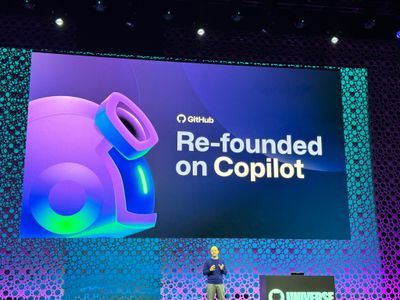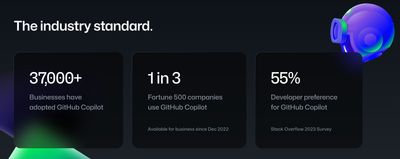The Shifting Trajectory of GitHub
Posted on:
This past week GitHub's annual developer conference, GitHub Universe, took place and with it a stark change in my opinion in how GitHub thinks of itself, an AI-driven developer platform with Copilot at its core. Their CEO even commented this that "Just as GitHub was founded on Git, today we are re-founded on Copilot"

What I see from this though is the continual push for a closed garden to be used by businesses where if you want more features you are going to have to buy in with your wallet.
GitHub as a social platform
One of the biggest proponents of GitHub was the millions of developers around the world. Anyone could sign up for free and contribute to thousands of projects that are used by millions of developers and billions of people every day. From that, the core functionality over the years has continued to improve for every single user. Features such as Issues, Package Registries, Pull Requests, Discussions were at the core of what made the platform, and a bunch of open source teams grew out of this core offering. various projects that grew to scale weren't because the developers' employers were paying them to work on them, but because the developers themselves wanted to fill a gap in their market. And GitHub as well wasn't walling issues or discussions functionality to only paying users either.
Enshittification of GitHub: An enterprise focused platform
That said, as GitHub was acquired by Microsoft, the philosophy has started to heavily shift. GitHub Codespaces, or a fully cloud-based code editor based on Visual Studio Code was introduced a few years ago. In theory, the offering was a solution to the growing complexity of development environments where instead of having to download dozens of libraries, programming languages, build tools, etc to get your project up and running, you open a preconfigured environment and are ready to go. That said, servers aren't free and as such, the pricing shows that at $0.18/hour of compute. You are given 60 hours for free, but that only goes so far.
As well, GitHub has been driving towards security functionality as well. Some of their offerings are free, such as code scanning with CodeQL, or keeping dependencies up to date with Dependabot. That said, this is only the case for public repos, as CodeQL just doesn't work on private repos unless you are subscribed to GitHub Advanced Security, a low $50 a month per committer, and note: a feature only available if you are also using their enterprise offering, which starts at $20/month/user.
Finally, with the entire keynote at Universe this year, there was zero features that were going to be available to all GitHub.com users. Features such as Fine-tuned models, copilot tuned in to your codebases, amongst others, are all being gated at higher and higher subscription price points. Copilot itself starts at $10/month, but the examples I mentioned are only available in their Copilot Enterprise plan, which is going to cost $40/month/user, on top of needing to be on GitHub Enterprise again.
But what about open source
To bring this all together, you feasibly are going to only be able to afford all of this when you are working for a company and it will be added to their operating expenses. That said, is convenience of quickly on ramping on to a project an enterprise feature? Is security up and down the supply chain an enterprise feature? Should AI tooling such as fine-tuned models for your particular use case be an enterprise feature? I don't think so, but GitHub is playing their hand and that is the trajectory they are going. On the splash page for Copilot, you can see their main headline is they're calling it an "Industry Standard" and focusing in on showing how many corporations are using it, which means how many people are paying them $10/month for now, but more in the future as the higher tier plans are opened up.

Even with this, they have this line in the pricing docs for GitHub Copilot:
A free subscription for GitHub Copilot is available to verified students, teachers, and maintainers of popular open-source repositories on GitHub. If you meet the criteria as an open source maintainer, you will be automatically notified when you visit the GitHub Copilot subscription page
So students will get it for free with the expectation that they get sucked into it and want to continue using it past their schooling which then they'll have to either pay personally or ask their companies to pay for. And "maintainers of popular open-source repositories" basically is a clout trip. Who gets to decide what "popular" means, and does that mean smaller open source projects are out of luck?
What I see out of all of this, besides all the issues with the ethics behind Copilot and how it may change how developers learn / what things they need to learn, GitHub is a company trying to extract as much money from their users. I get that GitHub can't survive as a business if they give everything away for free, but it is clear that their old mantras of caring about the developer is gone. GitHub will offer you all the features in the world, just pay up.